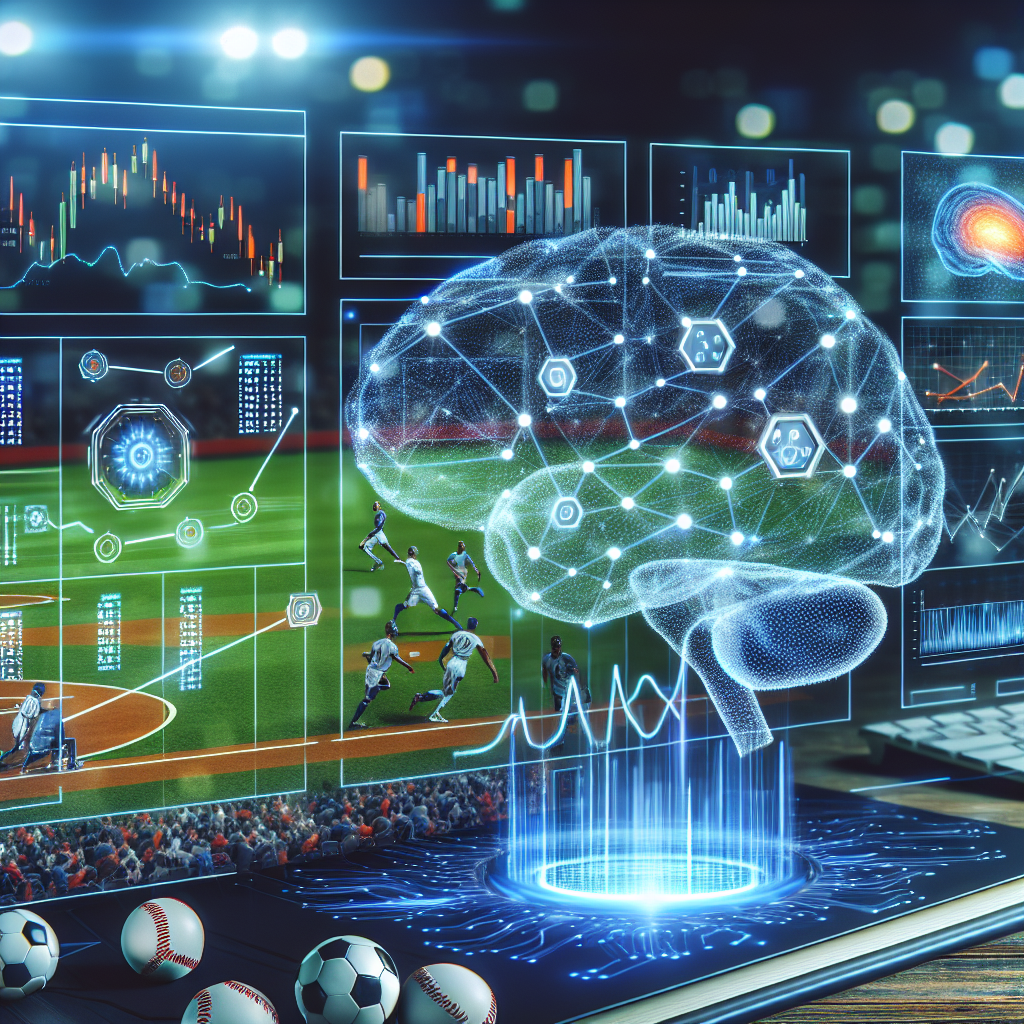Artificial intelligence (AI) is revolutionizing the world of sports analytics, providing teams, coaches, and athletes with valuable insights that were previously unattainable. By harnessing the power of AI, sports organizations can now analyze vast amounts of data in real-time, helping them make better decisions and improve performance on the field.
AI in sports analytics is being used in a variety of ways, from predicting player performance to optimizing game strategies. In this article, we will explore how AI is transforming the world of sports analytics and what it means for the future of sports.
AI and Player Performance
One of the key ways AI is revolutionizing sports analytics is through its ability to predict player performance. By analyzing player data, such as statistics, fitness levels, and injury history, AI algorithms can predict how a player is likely to perform in a game or training session.
This information can be invaluable for coaches and team managers, helping them make informed decisions about team selection and game strategies. For example, if an AI algorithm predicts that a player is at risk of injury, the coach can adjust their training schedule to reduce the likelihood of this happening.
AI can also help teams identify new talent by analyzing player data from a variety of sources, such as social media, scouting reports, and video footage. By using AI to analyze this data, teams can identify players who have the potential to succeed at a higher level, giving them a competitive edge in the recruitment process.
AI and Game Strategies
AI is also revolutionizing sports analytics by helping teams optimize their game strategies. By analyzing data from past games, AI algorithms can identify patterns and trends that can help teams make better decisions on the field.
For example, AI can analyze data on opposing teams’ tactics and playing styles, helping teams develop strategies to counteract them. AI can also analyze player data to identify strengths and weaknesses, helping coaches develop game plans that maximize their team’s chances of success.
In addition, AI can help teams make real-time decisions during games by providing instant insights and recommendations. For example, AI algorithms can analyze data from sensors worn by players to provide coaches with real-time feedback on player performance, allowing them to make informed decisions on substitutions and tactics.
Overall, AI is revolutionizing sports analytics by providing teams with valuable insights that can help them improve performance on the field and gain a competitive edge over their rivals.
FAQs
Q: How is AI revolutionizing sports analytics?
A: AI is revolutionizing sports analytics by providing teams, coaches, and athletes with valuable insights that were previously unattainable. By analyzing vast amounts of data in real-time, AI algorithms can predict player performance, optimize game strategies, and help teams make better decisions on the field.
Q: How does AI predict player performance?
A: AI predicts player performance by analyzing player data, such as statistics, fitness levels, and injury history. By using algorithms to analyze this data, AI can predict how a player is likely to perform in a game or training session, helping coaches make informed decisions about team selection and game strategies.
Q: How can AI help teams optimize their game strategies?
A: AI can help teams optimize their game strategies by analyzing data from past games to identify patterns and trends. By analyzing data on opposing teams’ tactics and playing styles, AI can help teams develop strategies to counteract them and make better decisions on the field.
Q: How can AI help teams make real-time decisions during games?
A: AI can help teams make real-time decisions during games by providing instant insights and recommendations. For example, AI algorithms can analyze data from sensors worn by players to provide coaches with real-time feedback on player performance, allowing them to make informed decisions on substitutions and tactics.

